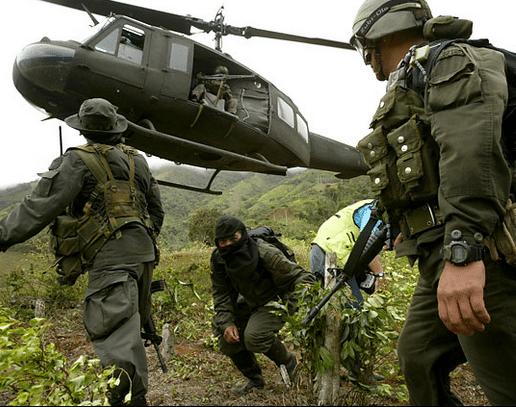Colombian drug culture expert says Ecuador is well-positioned to reject cartel violence
Ecuador is in much better position to defeat drug traffickers than Colombia and it’s not just because the country produces almost no illegal drugs of its own.

U.S. photojournalist Stephen Ferry
“When the journalists from El Comercio were kidnapped and then killed, tens of thousands of people from all over Ecuador turned out for vigils,” says author and Colombia expert Stephen Ferry. “There was a genuine sense of outrage that this could happen to Ecuadorians. You don’t see this in Colombia because the bloodshed there is normal and the country has become jaded to it.”
Ferry’s 2012 book Violentology chronicled the drug trade and drug culture in Colombia. “What I wrote about and photographed told the story of country that had acquiesced to violence. The drug business in Colombia involves a baffling array of actors: the armed forces, supported by the U.S., guerrilla armies, a host of right-wing paramilitary militias and criminal gangs, and government officials.”
He adds: “This is not the case in Ecuador and that’s why I believe the country will be able to keep the violence on the other side of the border if it has an intelligent plan.”

Colombian military personnel on patrol in a drug production zone.
Despite the murder of the journalists, Ferry says the media should keep sending reporters to report the conflict. “This is absolutely necessary for any democratic society that wants to understand what is happening in its territory. Unfortunately, the work sometimes requires sacrifice and it is heartening that Ecuadorians understand that a sacrifice was, in fact, made. For Colombians, murdered journalists is business as usual.”
The current conflict was predictable, Ferry says. “The Colombian government should have seen it coming when they were negotiating the peace agreement with rebels,” he says. “Almost everyone else did. They did not take the necessary measures to secure the territories that were under the control of the FARC. They did not have plan to help the poor coca growers who had worked under the old regime of drug gangs and guerrillas. The neglect is reprehensible and now the vacuum is being filled with new, even more murderous actors.”
Ferry says much of the blame for the current border conflict in Ecuador rests with the government. “For years, they turned a blind eye to what was happening in that region, just as Colombia has turned a blind eye on what is happening is large areas within its border,” he says.
He adds: “At this point, it is difficult to see a way out for Colombia whereas there is a way for Ecuador.”




















